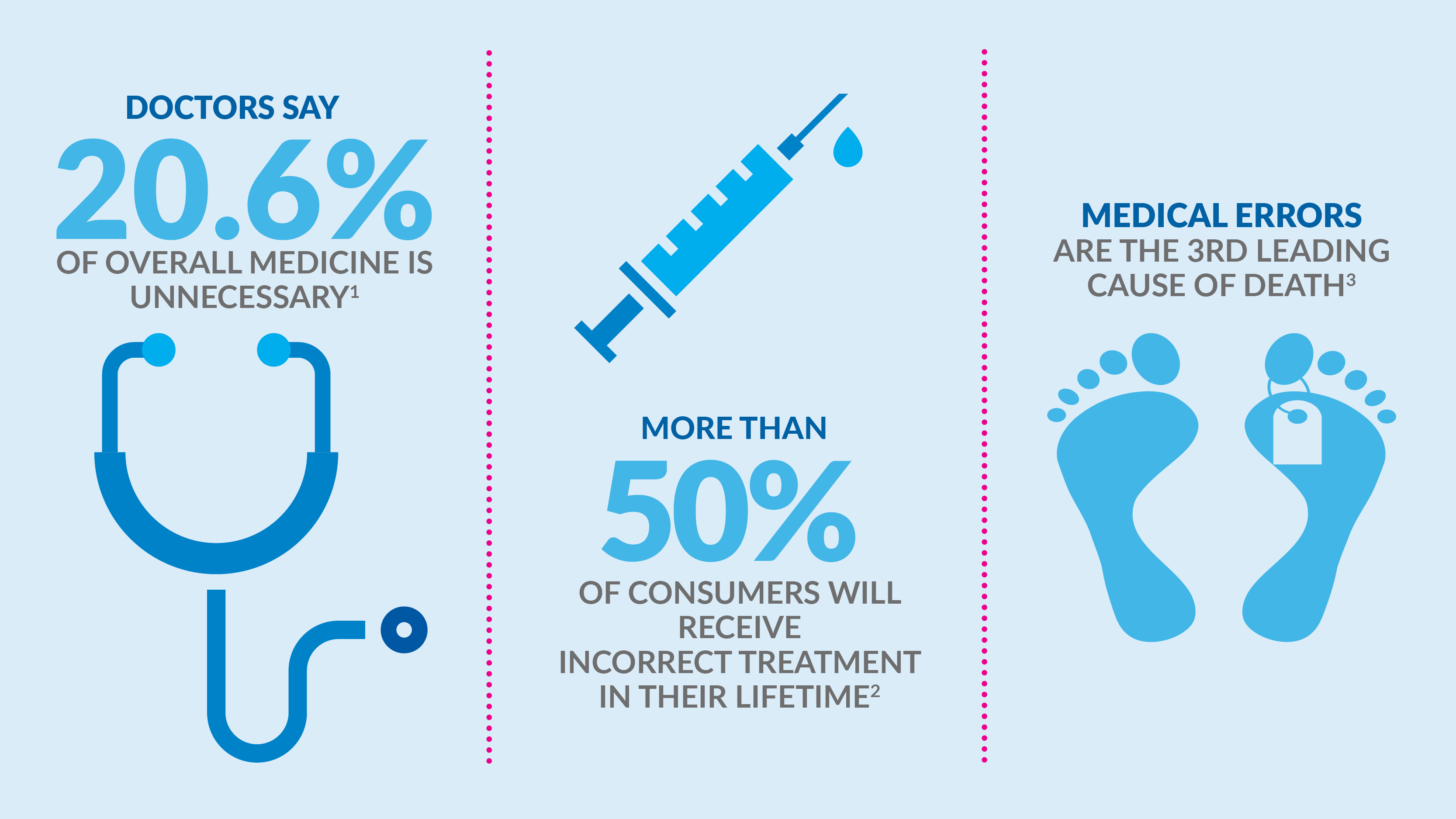3 minute read
It’s 2019. Technology is everywhere. Information is everywhere. So, it should be really easy to find a doctor when you need one. Right? Nope. Unfortunately, many consumers of healthcare don’t even know what the “right” doctor looks like, even though they may think they do. This is not saying people aren’t intelligent. The reality is that navigating the healthcare system is like navigating a mine field whether you have a 6th grade education or you’re a PhD.
The last 100 years or so has given us a healthcare system culture where second guessing your doctor was unacceptable. Even today, would you feel comfortable walking into a surgeon’s office and asking what her complication rate is? It would be better if you knew that before you visited her office. But, there has been zero transparency from the healthcare industry about such things.
Today, there are two big reasons why finding the right doctor is hard. First, there is a lot of noise on the Internet and social media about physicians. Those two people who gave 5 stars to Dr. Smith may have really loved Dr. Smith, but that doesn’t mean Dr. Smith is the right doctor for you. More importantly, it also doesn’t mean he or she is good at what he or she does. Also, three people who gave Dr. Jones 2 stars were mad because they didn’t get the inappropriate medication they were seeking.
Second, the information to which people need to have access to truly understand if a doctor is the right doctor is not accessible to patients, let alone most doctors. Even if physicians had the time to research specialists’ backgrounds, expertise and outcomes unique to the specific condition of every patient before making a referral, they don’t have access to that type of data. The end result is that referring physicians often refer patients to specialists based on long-established relationships or physician network connections. A lot of times this works ok. A lot of times it doesn’t.
How do you know you got the right one?
So, who is the right doctor? The right doctor is the one with the right training and the right technology and skills for your particular condition. The right doctor has good clinical outcomes and low complication rates. The right doctor only performs surgery or prescribes a medication when it is truly needed. The right doctor has the right operating staff at the right hospital such that there is a lower risk of complications. The right doctor doesn’t have a past criminal record or have had their license revoked in other states. The right doctor doesn’t have several, valid malpractice suits pending against him. Knowing this, are you sure you know how to find the right doctor for you or a loved one?
There is a big price to pay when you go to the wrong doctor.
In today’s world of subspecialization, just getting to the right type of specialist doesn’t cut it. A patient needs to be matched with a specialist who has unique expertise and success in treating their specific medical condition. When you have a problem with the retina of your eye, you don’t want an opthomalogist. You want an opthomalogist who specializes in retinal conditions. Bad and/or inconvenient things occur when getting to the right doctor or healthcare facility doesn’t happen.
Let’s start with the bad:

Even when the results aren’t devastating, patients still experience misdirected appointments, unneeded tests and inappropriate treatments. Not to mention the added cost – for patients, doctors, health plans, and health systems.
It’s the doctor. Duh.
In all the talk out there about quality, we seem to have forgotten that the first step to good clinical outcomes and patient satisfaction is making sure that the right patient is with the right doctor. That hasn’t been done well in the US healthcare system to date and we have all been paying the price: patients, payors, employers, and health plans. Good doctors do good things and we should be helping them get the types of referrals that remind them of why they went into medicine in the first place!
It’s time for doctor referrals to be reimagined. Improving healthcare quality is not just a futuristic goal – it’s a reality that we can accomplish together.
Learn what we can do to fix this healthcare dilemma for your organization or contact us today to get started.
1 PLOSOne Study
2 The American Journal of Medicine
3 Johns Hopkins Study


